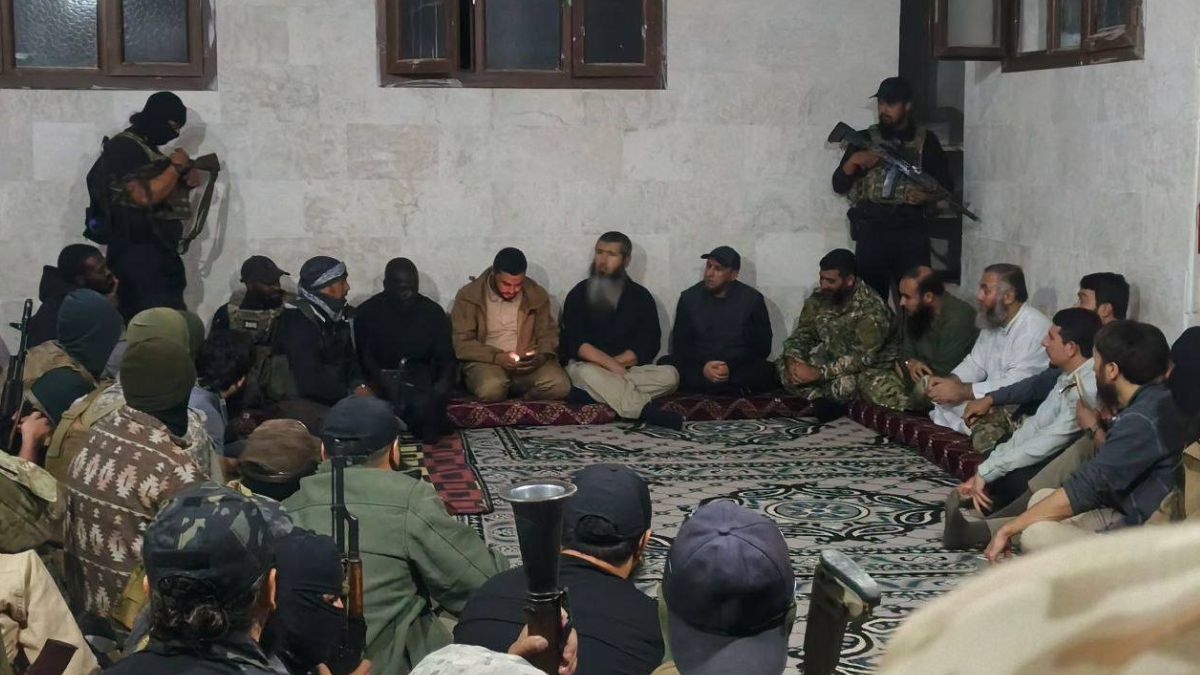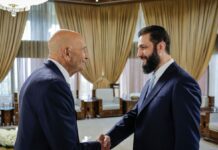
A tense standoff between Syrian security forces and a group of French nationals ended this week after a ceasefire agreement was reached in the northern Idlib countryside. The confrontation unfolded in the Al-Fardan camp near Harim, home to dozens of French-speaking families and volunteers led by Omar Diaby, also known as Omar Omsen, a French-Senegalese man long accused of recruiting French speakers to fight in Syria.
Local sources told Syria Now that the Internal Security Service, part of Syria’s Ministry of Interior, reached an accord with Omsen’s group, known as the “Firqatul Ghuraba,” or the “Strangers’ Brigade,” to halt hostilities and lift the state of alert. The deal called for the withdrawal of heavy weapons, an end to inflammatory media rhetoric, and the opening of the camp to Syrian government inspection.
The agreement came after clashes October 22, sparked by a government operation to recover an 11-year-old girl allegedly kidnapped and held inside the camp by Omsen’s fighters. Syrian forces surrounded the area after residents reported “grave violations,” including the child’s separation from her mother.
Mediators Step In to Contain Violence
Witnesses said tensions rose overnight Tuesday as government drones flew over the camp, with exchanges of gunfire reported inside. Videos circulated online showed damaged buildings and families fleeing for safety. The situation was deescalated when talks took place sponsored by notable representatives from Uyghur and Uzbek communities and Ministry of Defense personnel as mediators intervened, urging all parties to reach a settlement.
The resulting truce, was brokered by several respected commanders from the 84th Brigade, including Abdul Aziz al-Uzbeki, Abu Muhammad Turkistani and Abu Anas al-Tajiki. The deal allows government forces to enter the camp under supervision and transfers Omsen’s case—including the kidnapping accusation—to Syria’s Ministry of Justice for adjudication under Islamic law.
Ahmad Muwaffaq Zidan, media adviser to President Ahmad al-Sharaa, said on X that the clashes “resulted from a refusal to comply with the rule of law,” emphasizing that nationality was not a factor. “Syria today is a state of law,” Zidan wrote, adding that Syrians would face identical treatment in such circumstances.
‘An Internal Security Matter’
France’s Foreign Ministry confirmed to local outlets that it was aware of the operation and “following the situation closely,” but offered no further comment, calling it “an internal security matter” of the Syrian government.
Omsen, 49, has long been a controversial figure. Born in Senegal and raised in France, he became known for “producing jihadist media” before moving to Syria in 2013. The US State Department designated him a global terrorist in 2016, accusing him of recruiting most French-speaking militants who joined extremist groups in Syria and Iraq.
Analysts comment that while this case shows the challenge Syria navigates transitioning former fighters post-revolution it is not indicative of general trends or policies. Wassim Nasr of the Soufan Center told SARI Global that Diaby’s case is “too particular to predict policy,” noting the new Syrian administration has generally sought to integrate transnational volunteers into state forces rather than expel them—which most governments have been accepting of—given a lack of alternative solutions.








